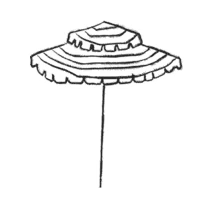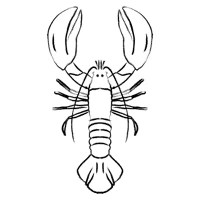Adorable Story #74: Gert-Rudolf "Muck" Flick
A man with a controversial legacy and a focus on history of art

Gert-Rudolf Flick is the grandson of notorious industrialist Friedrich Flick. Gert-Rudolf has spent much of his life grappling with the complex legacy left behind by his grandfather, whose business empire was built at least in part through exploitation and forced labor during the Nazi era.
Gert-Rudolf has taken significant steps to reconcile this dark past, especially through his commitment to art restitution, heritage preservation and cultural philanthropy.
If you aren’t subscribed yet, hit the subscribe button below to receive the Adorable Stories every weekend, directly in your inbox:
Early Life
Gert-Rudolf Flick was born in France on March 29, 1943, into the prominent Flick family: his father was Otto-Ernst Flick and his mother Barbara Raabe.
His grandfather, Friedrich Flick, was a key figure in German industry, particularly in steel and coal, and was one of the wealthiest men in Germany during the early to mid-20th century.
Family Background
Friedrich Flick’s business empire included significant holdings in the coal, iron, and steel industries, which were crucial sectors in pre- and post-war Germany.
However, the Flick family’s legacy is deeply marred by their involvement with the Nazi regime during World War II. Friedrich Flick was a major industrialist who not only benefited from the Nazi war economy but, sadly, also actively collaborated with (and actively profited from) the regime.
In particular, his companies utilized forced labor from concentration camps and occupied territories, profiting from the atrocities committed by the Nazis during the second world war.
Friedrich Flick’s close ties with the Nazi leadership — including financial direct contributions to Himmler’s infamous SS (Schutzstaffel) — underscored the depth of his involvement with the Germany authoritarian regime.
Nuremberg Trials
After World War II, Friedrich Flick was arrested and tried at the Nuremberg Trials, a series of military tribunals held to prosecute and bring to justice prominent leaders of Nazi Germany.
In 1947, Friedrich Flick was convicted of war crimes and crimes against humanity, specifically for his use of forced labor and his role in the Nazi economy: Friedrich Flick was sentenced to seven years in prison but was released early in the early ‘50s due to good behavior.
Post-War
The Flick family’s post-war period was marked by efforts to rebuild and distance themselves from Friedrich Flick’s tainted legacy.
Friedrich Flick successfully reestablished his industrial empire in the 1950s and 1960s, becoming one of West Germany’s most influential businessmen once again. Despite his criminal conviction, he managed to regain much of his wealth and influence.
For Gert-Rudolf Flick, growing up in the shadow of such a controversial figure shaped his worldview and personal ambitions.
Gert-Rudolf inherited not only a vast fortune but also the moral and ethical complexities associated with his family’s history. This legacy has influenced his career and philanthropic endeavors, as he has sought to navigate the challenges of managing the family’s industrial interests and addressing the historical injustices tied to their wealth.
Education and Career
Gert-Rudolf Flick pursued higher education with a focus on law and business. He studied at the University of Munich, where he earned a doctorate in law.
Together with his younger siblings, Friedrich Christian Flick (“Mick”) and Dagmar Flick, Gert-Rudolf negotiated a sale of their interests in the firm that was realised in 1975 for a shared 405m marks and an additional negotiated payment of 225m marks later.
Contributions to Art History
One of Flick’s notable achievements is his work in the field of art history. He has written extensively on the subject and his book, Missing Masterpieces, is a well-regarded exploration of lost and stolen art.
Keep reading with a 7-day free trial
Subscribe to Adorable Times’ Newsletter to keep reading this post and get 7 days of free access to the full post archives.







